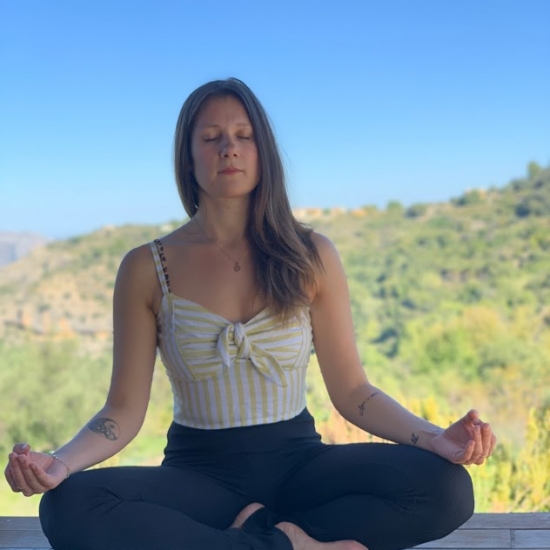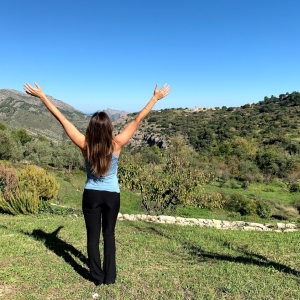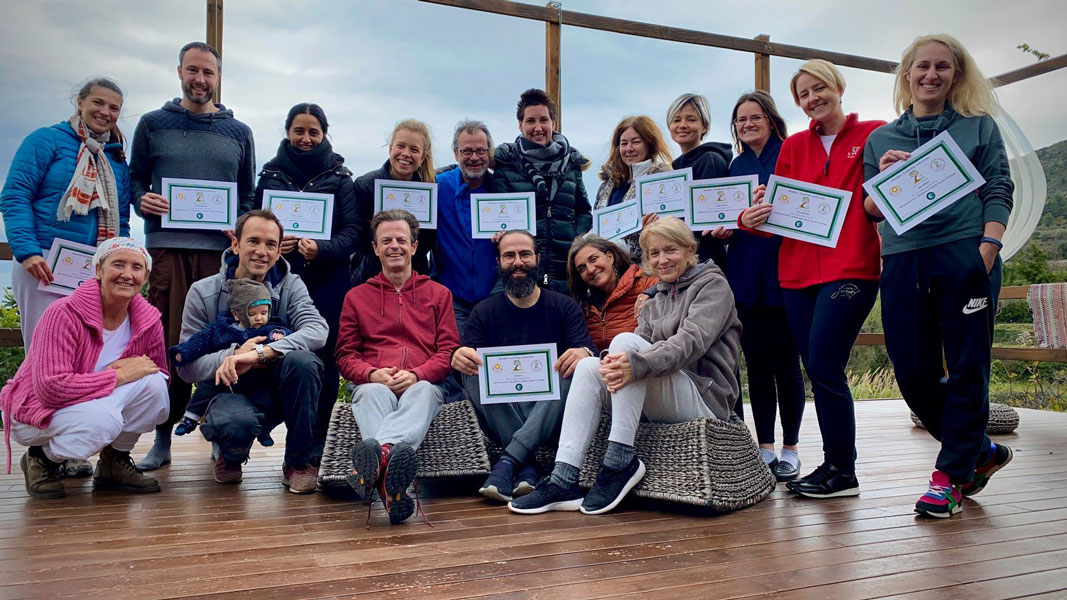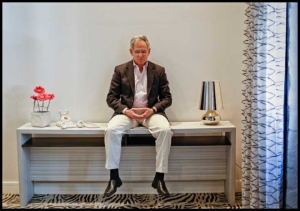
What is mindfulness?
Mindfulness is the awareness that emerges through paying attention on purpose, in the present moment, and nonjudgmental to things as they are.
Pay attention to what? you might ask. To anything, but especially to those aspects of life that we most take for granted or ignore. For instance, we might start paying attention to the basic components of experience, like how we feel, what is on our minds, and how we perceive or know anything at all. Mindfulness means paying attention to things as they actually are in any given moment, however they are, rather than as we want them to be. Why does paying attention in this way help? Because it is the exact antithesis to the type of ruminative thinking that increases the stress, worry and pain in our lives.
First, mindfulness is intentional. When we are cultivating mindfulness, we can be more aware of present reality and the choices available to us. We can act with awareness. By contrast, rumination is often an automatic reaction to whatever triggers us. It is tantamount to unawareness, being lost in thought.
Second, mindfulness is experiential, and it focuses directly on present-moment experience. By contrast, when we ruminate, our minds are preoccupied with thoughts and abstractions that are far away from direct sensory experience. Rumination propels our thoughts into the past or into an imagined future, and because science has proven that our body and minds do not know the difference between real and imagined, well we are just reliving things over and over again!
Third, mindfulness is non-judgmental. its virtue is that it allows us to see things as they actually are in the present moment and to allow them to be as they already are. By contrast, judging and evaluating are integral to rumination and the entire doing mode. Judgments of any sort (good or bad, right or wrong) imply that we or the things around us have to measure up in some way to an internal or external standard. The habit of judging ourselves severely disguises itself as an attempt to help us to live better lives and to be better people but in actuality the habit of judging winds up functioning as an irrational tyrant that can never be satisfied.
Practising mindfulness is more than just noticing things around us that we hadn’t noticed before It is learning to become aware of the particular mode of mind that gets us stuck when misapplied to ourselves and our emotional life. With an increasing ability to sustain mindfulness, we can explore what happens when our emotions are allowed to come and go in awareness with a non-judgmental attitude and self-compassion.
The practise of mindfulness teaches us to shift into being mode so that we can be more at peace with our emotions. Our emotions are not the enemy, after all, but messages that reconnect us in the most basic and intimate of ways with the adventure and experience of being alive.
So What is Mindful Yoga & Mindfulness Meditation?
As we have seen, Mindfulness is a life skill which can deepen our sense of well-being and fulfilment. It involves paying attention to what is occurring in our present moment experience, with an attitude of openness and non-judgmental acceptance. It engages all of our senses as we open to our entire experience, becoming aware of our body, emotions, thoughts and the external environment.
As Jon Kabat-Zinn so eloquently describes it, Mindfulness is “arriving at our own door”, being in touch with ourselves, with others and our surroundings in the present moment. It is a natural and intuitive state of presence in which we can feel more connected, real and alive.
The practice taps into the innate potential for healing that we all have. It mobilizes our ability to cultivate embodied wisdom and self-compassion, and by so doing it teaches us to live our lives and face whatever arises with integrity, clarity and an open-hearted presence.
Some definitions of Mindfulness
Knowing what you are experiencing while you are experiencing it.
– Guy Armstrong
Mindfulness means paying attention in a particular way:
on purpose, in the present moment, and non-judgmentally.
– Jon Kabat-Zinn
Mindfulness is moment-to-moment awareness.
With awareness comes choice, with choice freedom,
So Awareness is freedom.

What Mindfulness can gives us
If you’ve not tried mindfulness before, the science says it will:
- Reduce your stress (and its negative impact on your body)
- Improve your focus and performance
- Increase your sense of purpose and meaning
- And most importantly: tame the brain.
Some advantages of mindfulness

Awareness is our first step in choosing how to respond skillfully to stress. When we practice bringing mindfulness to all aspects of our present moment experience, we are learning not to react right away – to the pleasant, unpleasant and neutral parts. Mindful awareness invites us to pay attention to our perceptions and how these shape our choices and actions, thus shining the light of awareness on the shadow of stress. By cultivating a kindly interest in these aspects of our experience, with openness and acceptance, this can help us to develop effective ways of responding positively and proactively to stressful, situations, experiences and pain.
The overall tenor of mindfulness practice is gentle, appreciative and nurturing. Another way to think of it is heartfulness.
Jon Kabat-Zinn

Practising Mindfulness is growing our capacity to adapt to our everyday moments in more skilful ways; ways that support our health and well-being. In our practice, we bring a close and caring attention to our automatic and habitual stress reactions, without trying to change them. As we practice and describe our experiences, we can also recognise and honour how these patterns may have been protective for us and supported our survival, in the past. We also explore how they may now be counter-evolutionary and limiting, even self-destructive. We learn how certain thoughts and emotions can trigger and amplify our stress reactivity and how this affects our health and well-being. We remember that what we practice grows stronger.
“We cannot solve our problems with the same thinking we used when we created them”
Albert Einstein

We will explore awareness of emotions and gain clarity in knowing and expressing our feelings. We practice allowing, rather than resisting, our emotional experience. As we grow our awareness of emotions, we may better understand the messages we are sending to others and receiving from others and the barriers to being with ourselves and others in heartfelt and authentic ways.
Mindfulness is most effective when it is woven into our daily lives and offers us a broader sense of awareness and presence in each of our moments. We reflect on the choices we make in our daily lives that are supportive or nourishing, as well as those that are not so helpful or depleting. As we continue to cultivate present moment awareness, we open up to new possibilities and we grow a certain flexibility in making choices that support. rather than limit, our health and well-being. We learn how the practices can also help us to develop a disposition of generosity so that it may arise more readily, enriching both our own day-to-day lives and the lives of those we meet in our moment to moment interactions.
“You can’t stop the waves, but you can learn to surf”.
Jon Kabat-Zinn

How to learn mindfulness

We run MBSR retreats, suitable for beginners with no previous experience.
We run MBSR Mindfulness Teacher Trainings
We run Mindfulness Silent Retreats, for more experienced Practitioners.
We run MBSR Online courses
Mindfulness MBSR and YOGA Retreats:
MBSR for STRESS, ANXIETY OR DEPRESSION. We offer Mindfulness-based Stress Reduction (MBSR / MBCT) with an experienced group facilitator and a mindfulness teacher. We will cover the original 8-week MBSR curriculum and learn how to take better care of ourselves through the interplay of mind and body – and mobilizing our own inner resources for coping, growing and healing.
We teach you how to use medically proven mind-body approaches derived from meditation and yoga to counteract stress, establish greater balance of body and mind, and stimulate well-being and healing. By engaging in these mindfulness practices and integrating them into your life from moment to moment and from day to day, you can learn to manage chronic pain, promote optimal healing, reduce anxiety and feelings of panic, and improve the overall quality of your life, relationships, and social networks.
These courses are open to the general public and we invite anyone who would like to live a life with less stress and more awareness. Beginners are welcome. No prior knowledge, or experience with, mindfulness practices is required. (They also meets one of the requirements for applying to the Mindful Academy MBSR Teacher Training program). We will cover the 8 sessions of the Mindfulness MBSR course, plus Yoga / Yin Yoga every day, suitable for everyone and guided walks in the mountains.
Mindfulness MBSR and YOGA Retreats:
MBSR for STRESS, ANXIETY OR DEPRESSION. We offer Mindfulness-based Stress Reduction (MBSR / MBCT) with an experienced group facilitator and a mindfulness teacher. We will cover the original 8-week MBSR curriculum and learn how to take better care of ourselves through the interplay of mind and body – and mobilizing our own inner resources for coping, growing and healing.
We teach you how to use medically proven mind-body approaches derived from meditation and yoga to counteract stress, establish greater balance of body and mind, and stimulate well-being and healing. By engaging in these mindfulness practices and integrating them into your life from moment to moment and from day to day, you can learn to manage chronic pain, promote optimal healing, reduce anxiety and feelings of panic, and improve the overall quality of your life, relationships, and social networks.
These courses are open to the general public and we invite anyone who would like to live a life with less stress and more awareness. Beginners are welcome. No prior knowledge, or experience with, mindfulness practices is required. (They also meets one of the requirements for applying to the Mindful Academy MBSR Teacher Training program). We will cover the 8 sessions of the Mindfulness MBSR course, plus Yoga / Yin Yoga every day, suitable for everyone and guided walks in the mountains.
Mindfulness Teacher-Led Silent Retreats
These teacher-led silent retreats offer a safe and supportive environment for experienced Meditators, Mindfulness Teacher Trainees and Established Teachers in which to deepen and extend secular mindfulness meditation practice. These silent retreats are specifically designed to meet the good-practice guidelines for Mindfulness teachers on the teacher training pathway and are also highly suitable for more experienced teachers wishing to deepen their connection to the core underpinnings of mindfulness as it is taught in the eight-week course. No previous retreat experience is required as full teacher support is available.
MBSR Online Live
The online version of the popular 8-week MBSR course, delivered live through video conference, allowing anyone, anywhere to participate. Engage with the teacher and interact with participants through your computer during online class time.
How to become in mindfulness teacher
The MBSR Teacher Training course is taken in 2 residential retreat modules and on graduation of the course, you will have the skills and confidence to teach Mindfulness-based Stress Reduction MBSR classes, MBSR 8 week Stress Reduction courses and private MBSR classes that empower people to make a real difference to their lives.
OUR ACCREDITED MINDFULNESS TEACHER TRAINING COURSE focuses primarily on the teaching process and curriculum of the group based 8-week Mindfulness-based Stress Reduction MBSR Course, developed by Jon Kabat-Zinn at the University of Massachusetts Medical Centre and also in the UK by the Centre for Mindfulness Practice and Research CMRP where our Senior International Trainer Bodhin Phillip Woodward trained in MBSR, Mindfulness Inquiry and Supervision.
This intensive, mindfulness-based teacher training has been developed, refined and delivered since 2012 and teachers from all over the world choose to attend this programme, so it is highly international.
As a professional Teacher Training School, we support the Good Practice Guidelines for teaching Mindfulness-based courses and we assess students using the Mindfulness-based Interventions Teaching Assessment Criteria (MBI-TAC).
History about mindfulnes
 Historical development in 21st Century
Historical development in 21st Century
In 1979 Dr Jon Kabat-Zinn founded the Mindfulness-Based Stress Reduction program at the University of Massachusetts to treat the chronically ill, which sparked a growing interest and application of mindfulness ideas and practices in the medical world for the treatment of a variety of conditions in people both healthy and unhealthy. The Mindfulness-Based Stress Reduction program uses the body scan as well as sitting meditation to manage pain. The body scan is derived from a traditional Burmese meditation practice called sweeping, from the school of U Ba Khin that S. N. Goenka teaches in his ten-day Vipassana retreats.
Much of this was inspired by teachings from the East, and particularly from the Buddhist traditions, where mindfulness is one of the eight constituents of the Noble Eightfold Path taught by Siddhartha Gautama, The Buddha, who founded Buddhism almost 2,500 years ago. Although originally articulated as a part of what is known in the West as Buddhism, there is nothing inherently religious about mindfulness, and it is often taught independent of religious or cultural connotation.
Thich Nhat Hanh has brought mindfulness to the attention of Westerners. It was on a retreat he led in the United States that an American doctor, Jon Kabat-Zinn, first realized the appropriateness of mindfulness in the treatment of chronic medical conditions. Kabat-Zinn later adapted Hanh’s teachings on mindfulness into the structured eight-week Mindfulness-Based Stress Reduction course, which has since spread throughout the Western World. Mindfulness and other Buddhist meditation techniques receive support in the West from figures such as the scientist Jon Kabat-Zinn, the teacher Jack Kornfield, the teacher Joseph Goldstein, the psychologist Tara Brach, the writer Alan Clements, and the teacher Sharon Salzberg, who have been widely attributed with playing a significant role in integrating the healing aspects of Buddhist meditation practices with the concept of psychological
